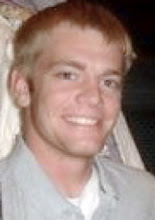We leave for Luxor in about 3 hours. For those of you unfamiliar with Luxor, it is where the ancient city of Thebes was and is near the Valley of the Kings and Valley of the Queens. Several Pharaonic temples are there and Luxor has more ancient Egyptian history than can be seen in 3 days. But we are going to try! I will be sure to give a huge post on Luxor and all the ancient Egyptian monuments we see when we get back. We leave tonight and take an overnight train to Luxor. After 3 days, we will be back early Monday morning.
As for this week, once we got back from Dahab, we heard a very inspiring talk from Hasam Baghat, which I already commented on. The next day we heard from our director, Dr. Heather Keaney’s husband, Jim Wright. He is a Cambridge educated lawyer who owns his own law firm here in Cairo. He spoke on cross-cultural living and how to live radical lives abroad. A lot of his focus was on how to show Christ in a Muslim city. He is very intelligent and his thoughts were extremely insightful. His talk really has helped me bring together my thoughts on the things I have been seeing around me. It has been a little bit disorienting at times seeing poverty, Islam, my own Christianity etc. in all new lights. I am starting to figure out what it means to be open-minded, have a solid core of belief and learn about what is around me.
We have had two long lecture sessions with our Islam teacher, Dr. Chahinda this week. She is a Muslim herself and has very moderate viewpoints on Christianity and inclusivism. It has been really interesting learning more about Islam and also seeing her brand of Islam, which I must say is very tolerant and loving. I know that not all Muslims share her view, but her Islam is inspiring!
Yesterday we had a political officer from the U.S. embassy in Cairo speak to us. His job is mainly watching the Egyptian government and making sure that American interests are being protected, as well as watching the human rights scene in Egypt. He came in and spoke a bit about his career and what it is like working for the US State Dept. He then opened the floor for questions. That began an hour and a half of us asking him tough questions. I feel bad for him because we bombarded him with well thought out and well supported questions about what our government is doing in the Middle East and why they are doing it. We covered Obama’s soft stance on Iran, America’s double standard on nuclear weapons, America’s special relationship with Israel, the turbulent political climate in Syria, America’s priorities in the Middle East, stability in Iraq, Afghanistan, Lebanon, and of course Egypt. He was very dodgy with a lot of our questions, as one would expect from someone working for the State Department. But while it was an exercise in patience trying to get a straight, direct answer out of him, there were many important things I learned about American foreign policy, our Middle East priorities, and the changes made under Obama. Some of my thoughts and observations and interesting nuggets from the talk:
➢ He ranked the American priorities in the region this way:
1. The peace process with Israel
2. Stability in Iraq
3. Economic Development
➢ Egypt is the most important state in the region to be an American ally as far as diplomacy goes, because they have full diplomacy resources with Iran, they can help negotiate with Israel and Palestine, and they also talk to Hamas.
➢ The relationship between the U.S. and Arabs has improved under Obama and are more willing to talk peace in the region (probably because Obama doesn’t push the democratization agenda the same way Bush did).
➢ Once Iran gets nuclear weapons, the belief is that Saudi Arabia, Egypt and Syria would soon follow, which makes Iran’s nuclear program all the more a pivotal issue.
➢ The situation in Afghanistan demands more State Dept. and Defense Dept. resources than any other situation.
➢ He was the most veiled about the American plan for Egyptian politics when the 81 year old president, Hosni Mubarak dies. He claimed that America would push for a democratic election to determine the next leader. I then asked a pointed question about a democratic election leading to an election of the Muslim Brotherhood (known as a terrorist organization; this situation would be very similar to Gaza’s fair election of Hamas, which the U.S. has not recognized as a legitimate government). He hardly even answered that question. My take is that the National Democratic Party will fix an election to get Gamal Mubarak into power and the U.S. will look the other way to keep the Muslim Brotherhood out of the government.
➢ He said that the U.S. has been on much better terms with the United Nations under Obama.
Every question and answer was very interesting. I think that I learned more about what it means to work for the State Department (having to promote American values, rather than your own values; having to give the public State Department opinion on everything etc.) than I did about America’s true plan in the Middle East. But, all in all it was a good session and everyone ended on very good terms and he finished by asking us what we want to see from our government (which we gave him a polite earful).
We leave soon for Luxor and I will give a full post once I get back.
P.S. Feel free to weigh in with an opinion on any of this stuff. I would love to talk a little bit about all this.
Subscribe to:
Post Comments (Atom)

No comments:
Post a Comment